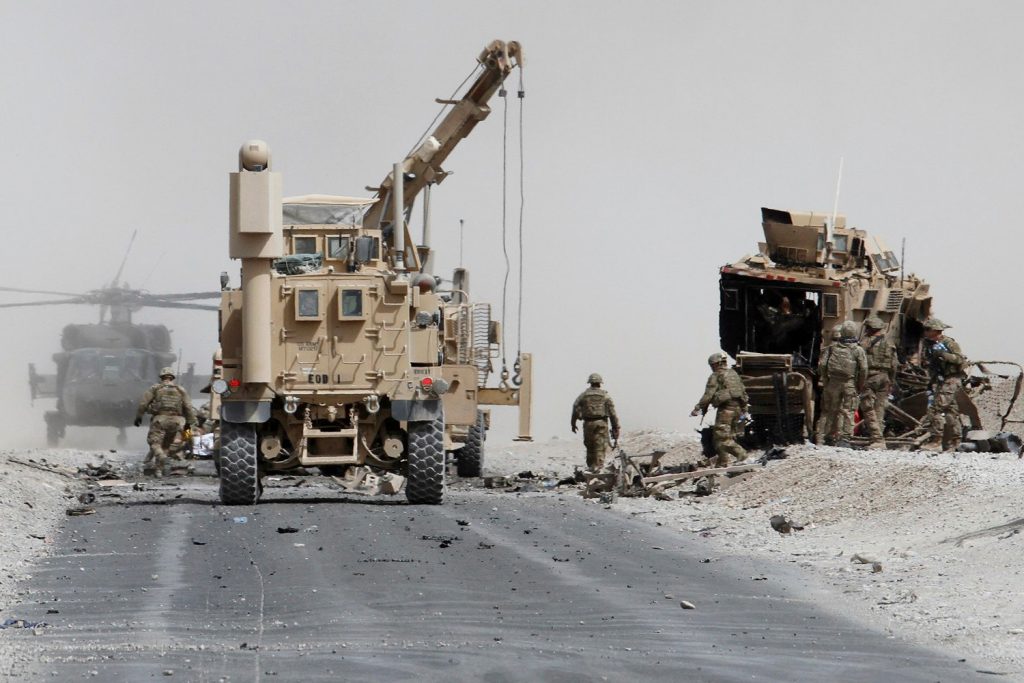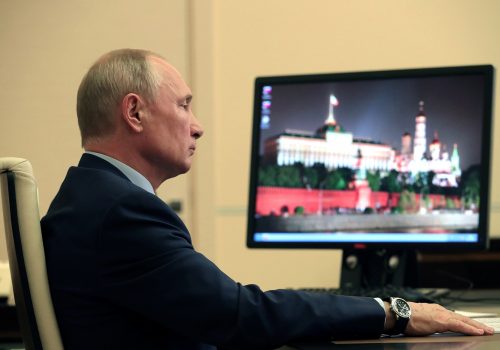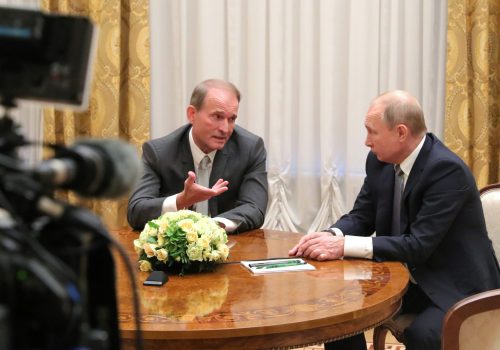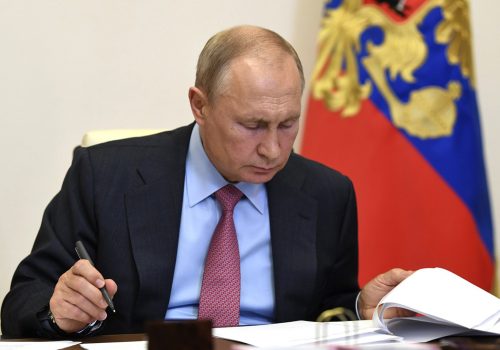According to a report from The New York Times, US officials believe Russian military intelligence (GRU) has been secretly paying bounties to Taliban-linked militants for attacks on US and Coalition troops in Afghanistan. The revelation has roiled Washington, with media reports claiming that US President Donald J. Trump and other top administration officials were previously briefed about Moscow’s actions, while the White House has insisted that neither Trump nor Vice President Mike Pence were made aware of any suspicions by US intelligence officials. Unnamed sources also told the Washington Post that attacks prompted by these bounties likely killed US and Coalition troops, although exact numbers are not known.
Kremlin Spokesman Dmitri Peskov described the allegations as “lies,” and added that the claim has never come up in conversations between Trump and Russian President Vladimir Putin. The report is the latest in a growing list of flashpoints between the two sides, including Russia’s continued war against Ukraine, Kremlin support for Bashar al-Assad in Syria, and deteriorating arms control treaties.
The allegations of Russian support for attacks against Coalition troops also comes at a critical time for the prospects of peace in Afghanistan, where the Trump administration is working to coordinate an orderly withdrawal of US troops while also supporting the beginning of peace negotiations between the Taliban and the Afghan government. An increase in violence across the country has threatened to derail progress towards a settlement, which has been growing since the February deal between the United States and the Taliban. Speaking at the Atlantic Council on June 11, Afghan President Ashraf Ghani warned that the country cannot afford to be the venue for “big power plays” between world leaders such as the United States and Russia, as “that’s what brought us tragedy in the 19th century and in late 20th century.”
How can the United States and its allies respond to these reports? Will the allegations threaten the prospects for an improvement in US-Russian relations and the drive for a peace settlement in Afghanistan? Our Atlantic Council experts dig into the implications of the dramatic revelation:
Jump to an expert response:
John Herbst: Offering a bounty for US lives is deliberately provocative.
Daniel Fried: Don’t use all of our sanctions tools at once.
Omar Samad: Does Russia want to hinder the Afghan peace process?
Debra Cagan: If the administration will not respond, Congress will.
Alexander Vershbow: Ignoring the intelligence would be even more disturbing.
Steven Pifer: Trump must draw a red line.
Offering a bounty for US lives is deliberately provocative.
“The New York Times’ story that the Kremlin has been offering bounties to Taliban-connected militants for killing American soldiers in Afghanistan has understandably created a stir in Washington. At first glance, this Kremlin tactic should be no surprise. It has been evident for some time that Moscow has been arming the Taliban, a policy suggesting that its concern about terrorism is weaker than its desire to create trouble for the United States. But this latest policy wrinkle is nonetheless startling. Offering a bounty for the death of American soldiers is deliberately provocative. And Kremlin decisionmakers understood that this policy was unlikely to remain secret.
“This decision recalls the Kremlin effort to poison Sergei Skripal with an exotic chemical weapon, Novichok, which pointed to Moscow as the culprit. In that case, the Kremlin wanted to demonstrate that it could get away with (attempted) murder. Moscow did not escape consequences for that operation—scores of its agents were tossed out of European countries and the United States and Washington did impose some sanctions. But sadly that reaction was not sufficient to dissuade the Kremlin from publicly tweaking its Western adversaries and especially the United States. Western policymakers need to understand this and craft policies better meeting the ongoing challenge coming from Moscow.”
John E. Herbst, director of the Atlantic Council’s Eurasia Center and former US ambassador to Ukraine.
Don’t use all of our sanctions tools at once.
“The story of a Russian GRU unit offering a “bounty” for killing American soldiers in Afghanistan understandably triggered calls for US counteraction. A larger point first: rather than engage in one-off responses to particular instances of Russian aggression—against Ukraine, against US elections, against US soldiers—the United States and its allies should develop a sustained strategy to “sharpen the contradictions” for Putin (as Secretary of State Condoleezza Rice put it after the Russian attack on Georgia in 2008). He can seek to gain from the global system, with the price being respect for its rules, or he can try to trash that system. But not both. The basis for allied consensus is there, waiting to be advanced, and the United States should focus on the many areas of existing or potential commonality (NATO deployments to the Alliance’s Eastern tier, counter-disinformation, energy diversity, financial transparency to constrict corrupt Russian money flows, etc.) We should not let even substantial areas of difference, e.g., Nord Stream II, expand into wedge issues which do increasing damage, as Trump did when he announced a pull out of US forces from Germany in retaliation for Nord Stream II.
“Many observers (and members of Congress) have raised the possibility of imposing more sanctions against Russia in answer to the GRU targeting of US forces. The United States designed its Russia sanctions program to allow for escalation in the event of new or intensified Russian aggression against Ukraine or elsewhere. We should retain that option and not use all of our sanctions tools on even this most recent egregious example of Putin’s aggression. We should retain sectoral sanctions’ escalatory options (especially financial, such as sovereign debt restrictions, and energy) for use should Russian interference in the 2020 elections reach new heights or should the Kremlin escalate its ongoing aggression against Ukraine. Such a contingency approach is the basis for the Graham-Menendez DASKAA (Defending American Security Against Kremlin Aggression Act, voted out of Committee) and we shouldn’t throw it out now.
“Retaliation for the Afghanistan “bounty” could include: increase in restrictions for military and dual-use technology, initially put in place during the Obama administration as part of the Ukraine sanctions package negotiated with the Europeans and others; reestablishment of an allied coordination mechanism to manage parallel restrictions among allies; additional sanctions against Russian individuals either close to Putin or close to the Russian military, working from the high-quality original version of the “Kremlin Report” (Countering America’s Adversaries Through Sanctions Act, CAATSA); and, possibly, one Russian state-owned bank or financial institution. We also should coordinate with the United Kingdom and European Union to tighten regulation against dirty money entering the United States, UK, and EU, which is a sound step in any case; increase transparency in real estate transactions (such as beneficial owner disclosure); and work with Germany, which has asked the EU to impose sanctions on those responsible for a Russia hack against the Bundestag a few years back.
“We should supplement these steps with measures to expose Putin’s corrupt financial networks, including working with Radio Liberty, though the Trump administration’s recent decapitation of the leadership of US Government broadcasting is another self-inflicted problem.
“In sum, the United States and its democratic allies have options, if we think through the challenge with care and in context of the larger challenge Putin poses for us.”
Daniel Fried, Weiser Family distinguished fellow at the Atlantic Council and former US ambassador to Poland.
Does Russia want to hinder the Afghan peace process?
“There have been reports since 2013 or so that contacts had been established between the Russians and the Taliban that may have, since then, gone beyond mere talks. The latest allegations are explosive in terms of reactions, political timing, the motivations, and consensus-building factors involved at a time when the United States intends to end the war and help find a political settlement.
“From an Afghan perspective, the process is cumbersome and the end-game (supposed to be Afghan owned/led) is now akin to pulling teeth. No one in their right mind expected it to be easy, but now, it’s entangled with multiple drivers and extraneous factors. While the debate grows around the story, a simple question to all Afghanistan stakeholders might be: do the Russians, or any other side for that matter, want to help or hinder the process, and to what end?”
Omar Samad, nonresident senior fellow in the Atlantic Council’s South Asia Center and former Afghan ambassador to France and Canada.
If the administration will not respond, Congress will.
“Russia has been playing a deadly game in Afghanistan, doing whatever it can to undermine the US-led coalition since 2001. It has armed known terrorists in Uzbekistan and in Central Asia’s Fergana Valley, and partners with the Taliban, knowing full well this would lead to a loss of US and NATO Allies lives. Sometimes the arms and equipment provided by Russia ended up in the hands of Chechen rebels who would use the weapons to attack the Russian military, but for Russia it was a small price to pay to get rid of its western enemies. This continued during the Obama administration as Putin correctly calculated that US redlines were just statements and had no teeth. And with Trump, Putin is even more emboldened believing that there is no action, no matter how vile, that will earn the enmity of this president.
“But what Putin has continuously failed to recognize is that aside from Trump, there is an overwhelming bilateral consensus in Congress that Russian actions and aspirations need to be checked and if the administration will not respond, Congress will. What is surprising is that anyone is still shocked by what depths of depravity Russia will sink to in order to perpetuate Putin’s view of the world order. It should not be a shock for anyone that Russia wants to see its enemies killed and maimed and will go to extraordinary lengths to get it done. The real shock is that anyone, anywhere in the West currently, including Trump, French President Emmanuel Macron and the legions of Russian apologists, still believe otherwise.”
Debra Cagan, former deputy assistant secretary of defense.
Ignoring the intelligence would be even more disturbing.
“The revelations in The New York Times aren’t entirely new: there have been reports of Russian political and military support to the Taliban for several years, going back to the last two years of the Obama administration. But the paying of bounties for the specific purpose of increasing the death toll for American troops is a new dimension. The failure of the Trump administration to respond is disturbing enough. Even more disturbing is the president’s apparent refusal to accept the “so-called” intelligence and to advocate for Russia’s return to the G-8 in the face of Moscow’s hostile behavior.”
Alexander Vershbow, distinguished fellow at the Atlantic Council and former deputy secretary general of NATO and US ambassador to Russia.
Putin hopes to see the US discredited and dispirited as it withdraws from Afghanistan.
“If the reports are true, the implications for Afghanistan and for the United States are quite troubling, but we should not be completely surprised. We have had reports for some time that while Moscow was claiming to support peace negotiations, it was also building ties and providing assistance to the Taliban in anticipation of US withdrawal. That it may have gone further in actually encouraging the Taliban to kill US and coalition troops would be a serious demonstration of hostility that must not be tolerated, if reports of the intelligence assessment are borne out. In any case, there should be no illusion that Russia is a “partner for peace” in Afghanistan. Moscow has been happy to see the United States and its allies struggle with the conflict, expending blood and treasure while also helping to contain the spread of violent Islamist extremism—which Putin fears in Russia. Putin hopes to see the United States discredited and dispirited as it withdraws, further undermining the United States, NATO, and the West.
“Again, if the reports of the intelligence assessment and its consideration by the National Security Council are accurate, the apparent lack of response would constitute a failure of leadership and duty. The American people need to know the facts. It may not be the case that the Trump administration, whether the president himself knew about the report or not, turned a blind eye because it was inconvenient for the president’s relationship with Putin, or for efforts to enlist Moscow’s help with the Afghanistan peace effort. But we should know.”
James B. Cunningham, nonresident senior fellow in the South Asia Center and former US ambassador to Afghanistan.
Trump must draw a red line.
“Reports that Russian military intelligence offered Taliban fighters in Afghanistan bounties for killing American and Coalition soldiers recall some of the most hostile actions of the Cold War: the Soviet Union providing surface-to-air missiles and other weapons to North Vietnam to use against US airmen and soldiers, and the United States returning the favor a decade later by arming the mujahideen In Afghanistan with Stinger missiles and other weapons. While US-Russian relations have hit a nadir, one would have thought—or at least hoped—that it would not come to this. But a Kremlin that countenances the murder of regime opponents on the streets of Britain and Berlin may not see these bounties as a step too far, particularly given Donald Trump’s reluctance to criticize any action by Vladimir Putin or Russia.
“The White House response to this story has been an embarrassment. Either the president was briefed, did nothing—not even ask the intelligence community to get to the bottom of it—and now lies about it, or White House staff showed gross incompetence in not briefing the president, leaving him to appear ignorant and totally out of the loop when the story broke. Neither alternative should reassure the American public.
“Fixing this would require Trump to draw a red line with Putin: don’t pay Taliban to kill US and Coalition soldiers or there will be severe and real consequences. Unfortunately, nothing in the past three years suggests that Trump is capable of drawing any kind of red line with Putin.”
Steven Pifer, William Perry Research Fellow at Stanford’s Center for International Security and Cooperation and former US ambassador to Ukraine.
Further reading:
Image: US troops assess the damage to an armored vehicle of NATO-led military coalition after a suicide attack in Kandahar province, Afghanistan August 2, 2017. REUTERS/Ahmad Nadeem/File Photo



